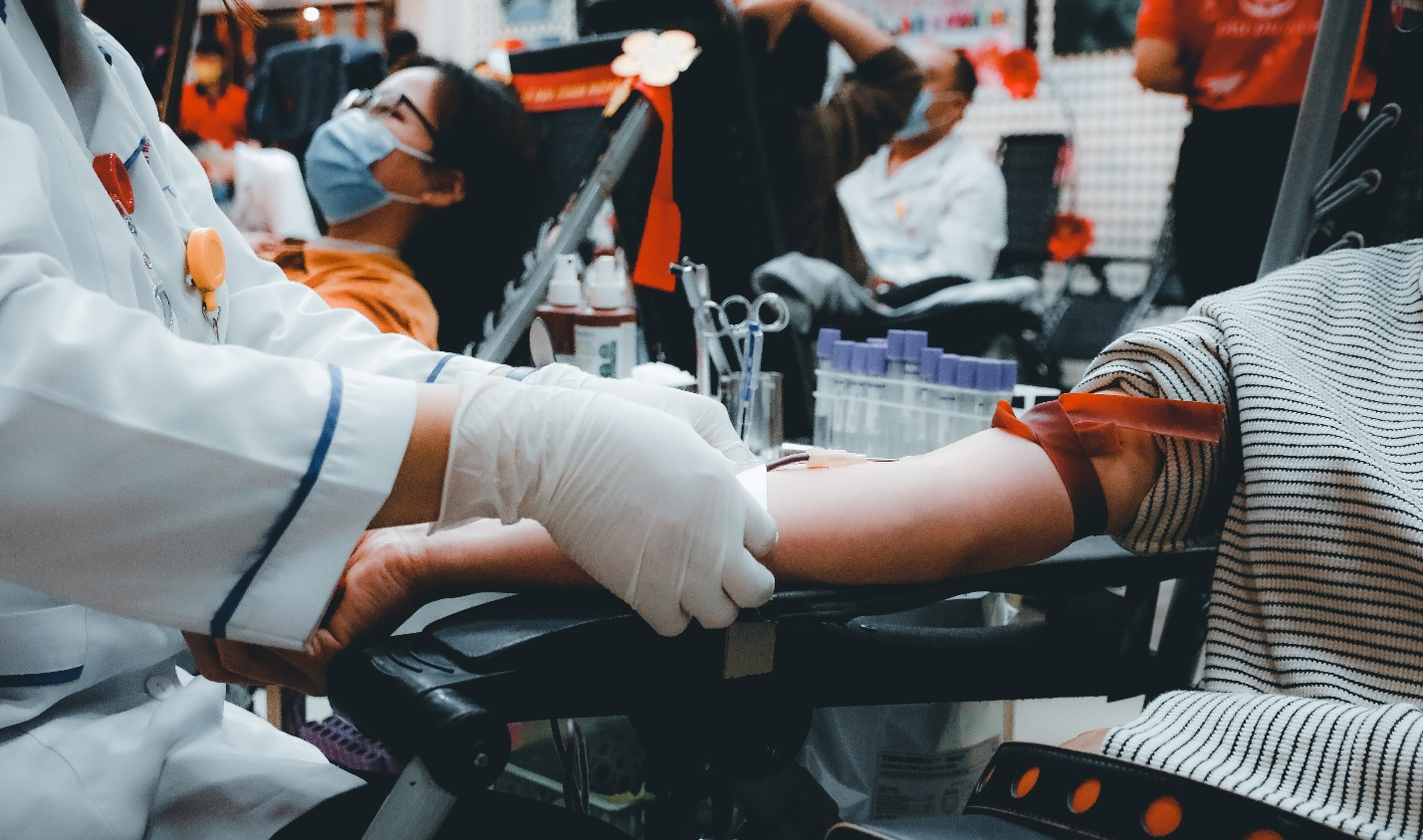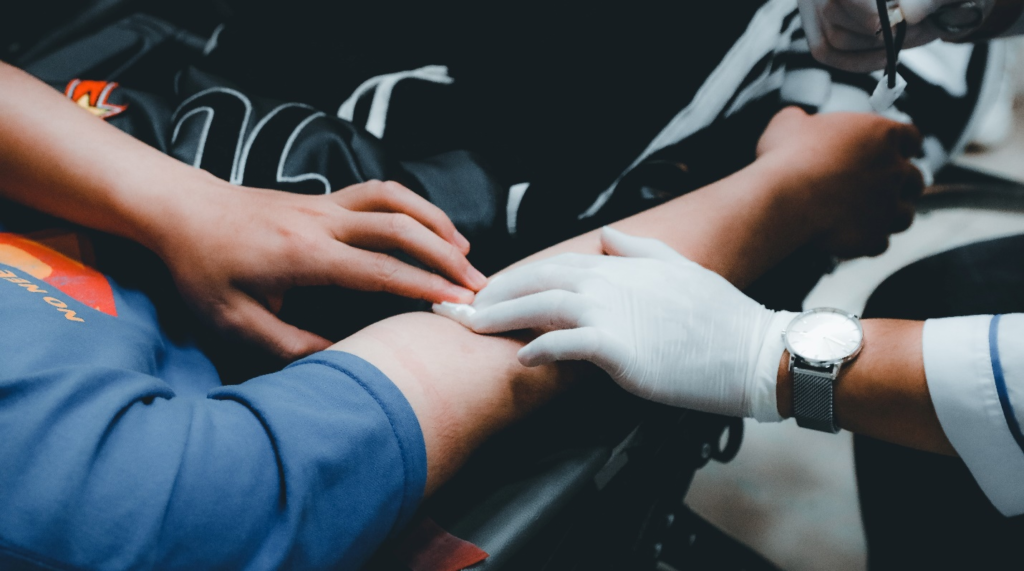
How Donating Blood Can Help Make A Difference In Society?

It’s said that the people are the lifeblood of a nation. They are responsible for running the country and are our most important resource. But, in times of danger, injuries and life-threatening medical procedures require a sacrifice from the people themselves. A donation of a substance that cannot be created artificially, i.e., lifeblood.
Blood is a precious and scarce commodity because of its short shelf-life, storage, and logistics. Despite the abundant population of the world, some people aren’t eligible to give blood. And those who do have to go through a medical screening process to determine if they’re healthy enough to donate and whether their donated blood passes the screening test.
The process is long but highly beneficial for both parties. Based on Red Cross’ statistics, every two seconds someone in the US needs blood to sustain life, and one donation can help save more than one life. Also, 100,000 people in the US suffer from sickle disease, and 1.8 million people are annually diagnosed who need blood for chemotherapy treatments.
There is no doubt about how precious blood is to sustaining life in many situations. That’s why every donation counts. Because one donation not only saves one life but many as our blood has many components that can be separated and used to treat afflicted individuals. This is how your donation can help make a difference in the society:

Advantages Of Donating Blood
Do you wish to do your part for your community and save someone’s life? Well, you’ll be surprised to know that you don’t have to take up arms (although that’s a noble calling). But It’s as easy and simple as going for a blood donation to your local clinic.
Play A Part In Helping The Community
If you’re going to donate blood, you can help people who are suffering from different medical emergencies. People can lose a lot of blood due to extensive internal and external injuries, transplant surgeries, cancer treatments, or genetic blood disorders that require red blood cells, white blood cells, platelets, or plasma transfusions.
Play A Part In Helping The Community Amid the Covid-19 Pandemic
According to the FDA, Food and Drug Administration Authority, people who have recovered from Covid-19 can donate blood plasma that contains antibodies. If you’ve survived Covid-19 and wish to help people stay protected from the virus in your community, donating your blood and plasma can help someone fight this infection.
Identify Underlying Health Issues
When you donate your blood, you’ll be asked to go through a physical screening and blood test. The test is not so in-depth, but it can help you find out if you have any underlying medical condition that may be putting you at risk, like low hemoglobin levels or anemia. They’ll check the body temperature, heart rate, blood pressure, and iron levels. Once this is confirmed, you’ll move on to the next stage.

But if they detect any abnormality or problem, you’ll not be able to donate blood. However, it’s a step in the right direction because you’ll catch the problem and get it treated.
Manage Your Weight
You might hear claims that blood donation can help you lose weight and you can burn up to 650 calories during the donation process. But, there is little scientific evidence to support these claims. And even if you do experience some difference in weight, the effect will be temporary.
One thing that might benefit you during the process is that they’ll measure your weight and BMI during your screening process. This will help determine if you’re underweight, overweight, obese, or anemic. You can go for counseling and a nutritionist for advice on how to healthily manage your weight and stay fit.
Manage Symptom Of Hemochromatosis
Hemochromatosis is a condition in which the body produces too much iron. Usually, the body needs iron to produce red blood cells, but with excessive amounts of iron in the body, the iron starts depositing itself in the organs, which causes them to function inefficiently. In the US, 1 million people suffer from this condition that affects their liver, heart, and lungs.
But, if you live with this condition, you’ll benefit from phlebotomy, which is much similar to the blood donation. An article by the CDC, Centers for Disease Control And Prevention, has claimed that hemochromatosis patients can benefit from this, but few agencies allow them to donate blood. However, their blood can be used as general donations.
Effectively Manage Your Heart Health
In the course of a study, females who habitually donated blood for more than a decade were monitored. It was found that the women who donated blood had better heart health and were relatively much safer from the risk of cardiovascular diseases.
So, if you’re considering donating blood this season, you might decrease your risk for cardiovascular diseases by continuing this habit.
Manage Your Blood Pressure
If you suffer from high blood pressure, you’ll benefit from giving a blood donation. Research was conducted that studied the effect of blood pressure on donors. Those who donated more had lower and regulated blood pressure. And those who donated less showed a higher blood pressure than their counterparts. But as they continued, their reading began to go down, and they benefitted as a blood donor.
Also, checking blood pressure is a part of the physical exam and it’s a way to know if people have high or low blood pressure, and how the donation process can be beneficial for them.
Reduce Your Risk Of Cancer
According to a 2007 research, over a million donors were studied for the risk of developing cancer and it showed that the risk of dying of any cause was 30 percent lower in donors than non-donors. And the risk of developing cancer and dying from it was 4 percent lower. So, if you’re a regular blood donor, you’ll enjoy an overall healthy lifestyle.
Reduce Your Risk OfDying
A new study from 2015 revisited the data and adjusted it for several different factors. It was concluded that donors had a 37.5% less chance of dying from any illness on average. If you’re thinking of becoming a regular donor, then this significantly raises your chance of living a long and healthy life.
Advantages of Blood Donation For Patients
Blood donations are not only beneficial for donors, but they are a lifeline for patients who depend on blood donations for medical treatments and living an overall healthy life. Here are some advantages for donor patients:
Blood Disorders In Platelets:
If you know someone who is suffering from platelets disorder, then you might see bruises, a lack of formation of blood clots in an injury, and heavy bleeding from cuts and injuries. Your blood and platelet donation can help people afflicted with this disorder from excessive bleeding and the danger of bleeding out.
Other disorders like thrombocytopenia refer to a low presence of platelets in the blood that does normally result in abnormal bleeding. But idiopathic thrombocytopenic purpura can cause bruising and abnormal bleeding in many circumstances.
Also, thrombotic thrombocytopenic purpura, causes platelets to clot the blood in the vessels can cause blockages, and results in a low platelet count. But, in this condition, when people are given Heparins are at risk of developing heparin-induced thrombocytopenia, which causes blood thinning due to a drug reaction to stop clotting.
Also, primary thrombocythemiais a similar condition that causes the body to produce too many platelets. This results in excessive clotting and bleeding at the same time.
Blood Disorders In White Blood Cells:
White blood cells are used to fight infections in our bodies. But genetic disorders can transform into blood cancers that would need blood donations on your part to help the people in your community and nation.
Well-known disorders like leukemia cause malignant white blood cells to multiply inside our bone marrow and cause damage to our organs. Similarly, myelodysplastic syndrome, also affect the bone marrow and can cause severe leukemia. These disorders require a blood transfusion, chemotherapy, and stem cell transplant to help people recover.
Another unique disorder is multiple myeloma in which malignant white blood cells multiply and release damaging substances into the organs of the body. This condition has no cure and transplants and chemotherapy allow people to live a short life and painful life.
Blood Disorders InRed Blood Cells:
Red blood cells disorders depend upon the iron content and the ability of the body to produce red blood cells. Most people with these blood disorders require red blood cell transfusions and blood transfusions to live a normal life.
Some of the disorders include anemia and irondeficiency anemia. These conditions show a low red blood cell count and low iron content in the body. They are mostly treated with iron supplements, and in very rare and serious cases, blood transfusions are required due to high blood loss.
Also, conditions like aplastic anemia cause the bone marrow to produce low levels of red blood cells to other underlying conditions like HIV, hepatitis, and chemotherapy medications. So patients experience weakness and require blood transfusion and bone marrow transplants as treatments.
One other condition sickle cell anemia is similar to platelet disorder where the sickle-shaped cells cause blockages inside veins. The cells also cause pain and organ damage among patients. Its treatments may require transfusion to help stabilize patients and remove blood clots.
Blood Disorders InPlasma:
Plasma is the medium that carries the other blood components in our blood. Some of the disorders that afflict this medium are:
Disseminated intravascular coagulation, DIC, is a disorder that can occur due to severe complications during pregnancy, severe infections, and surgeries. This causes tiny blood clots and tiny bleeding pockets in the body at the same time. Also, sometimes the body does not produce the coagulating protein that helps blood clot diseases like Von Willebrand disease. This is a genetic disorder that may require blood transfusions in case of injuries.
Also, some disorders allow the blood to clot easily and patients need blood thinner for the rest of their life to prevent blockages; this is also known as the hypercoagulable state. While in deep venous thrombosis, a coagulated clot can cause a pulmonary embolism. Because these blood clots occur in large deep veins and, once dislodged, can travel to the heart and lungs to cause damage.
All these disorders require treatment in the form of medication and transfusions, so the patients can live a healthy life and you can play a pivotal role in this process.
Learn More About Mobile Blood Draw Services
As Covid-19 vaccinations and booster administrations continue, the need for phlebotomists continues to grow. Also, the need for blood donation is on the rise as well because blood donation drives were not conducted during the lockdown period last year. Now that people have become aware of the issues, protecting high-risk demographic and our families have become more important than anything.
People are more likely to avoid healthcare centers for even small blood tests because of the pandemic. But this is where Phlebotomy On Wheels plays a pivotal role. If you have an individual at home who is bedridden, has mobility issues, disability, or any medical condition that renders them unable to visit a medical facility often for routine tests, you can get mobile phlebotomy services with Phlebotomy on Wheels.
We offer professional mobile lab services such as home blood draw services, paternity testing, Specimen pick-up, and delivery services in Maryland. Schedule an appointment with us now and get convenient medical test services in the comfort of your home.


